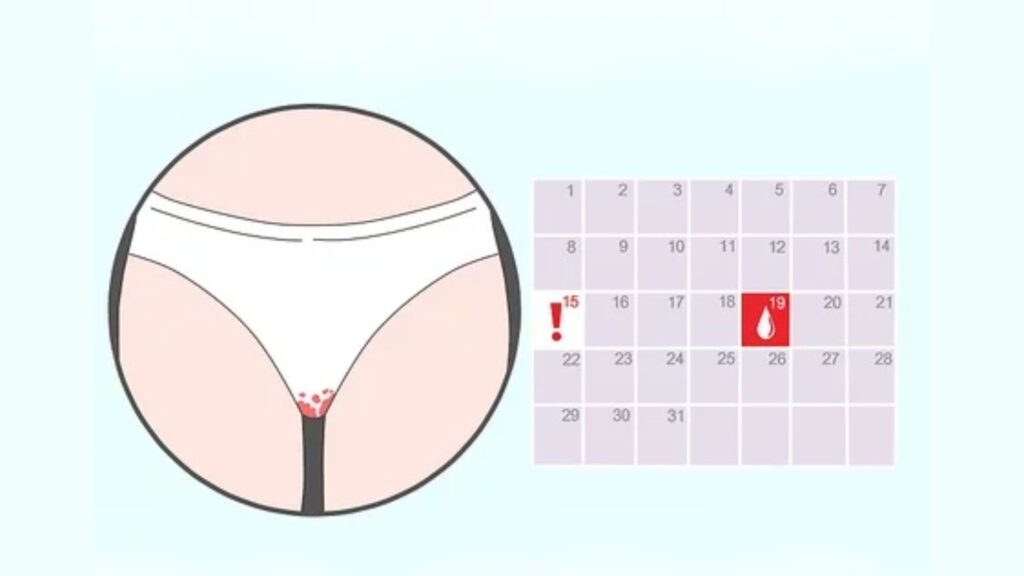Experiencing spotting a week after your regular menstrual cycle can be concerning and puzzling for many women. While it’s often considered normal, there are instances when it might signal an underlying issue that requires attention. Understanding the possible reasons behind this occurrence can help alleviate worries and enable informed decision-making regarding one’s health.
Also Read: Why am I Spotting After My Period
Possible Causes of Spotting
- Hormonal Imbalances: Fluctuations in hormone levels can disrupt the normal menstrual cycle, leading to unexpected bleeding or spotting. Factors such as stress, changes in birth control, or underlying health conditions can contribute to hormonal imbalances.
- Ovulation Bleeding: Some women experience light bleeding during ovulation, commonly referred to as ovulation spotting. This is caused by the release of an egg from the ovary and is considered normal for a small percentage of women.
- Uterine Fibroids or Polyps: These non-cancerous growths in the uterus can cause irregular bleeding, including spotting between periods. While they are often benign, it’s essential to consult a healthcare provider for proper diagnosis and management.
- Pelvic Inflammatory Disease (PID): In some cases, spotting post-period could indicate an infection in the reproductive organs, such as the uterus, fallopian tubes, or ovaries. PID requires prompt medical attention to prevent complications and preserve reproductive health.
- Pregnancy Complications: Spotting a week after the period could also be an early sign of pregnancy. However, it might indicate a potential issue, such as an ectopic pregnancy or miscarriage, which demands immediate medical evaluation.
When to Seek Medical Advice
While spotting after your period can be normal, certain scenarios warrant a consultation with a healthcare professional. These include:
- Persisting or worsening symptoms
- Severe pain accompanying the spotting
- Unusual changes in menstrual patterns
- Previous history of reproductive health issues
Tips for Maintaining Reproductive Health
- Maintain a balanced diet and regular exercise routine.
- Practice safe sex and use contraception if not planning for pregnancy.
- Attend regular gynecological check-ups for early detection of any abnormalities.
- Manage stress through relaxation techniques and healthy coping mechanisms.
Conclusion
Spotting a week after your period can have various underlying causes, ranging from normal hormonal fluctuations to potential reproductive health concerns. While some instances might not be alarming, it’s crucial to be aware of any changes in your menstrual cycle and seek medical guidance if necessary. Prioritizing reproductive health through a proactive approach can ensure early detection and effective management of any potential issues.

